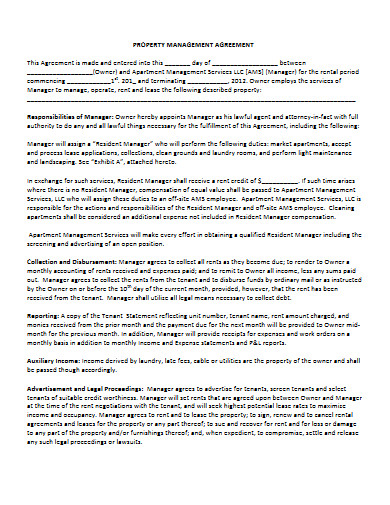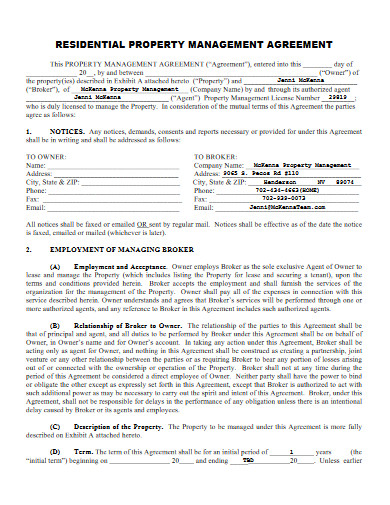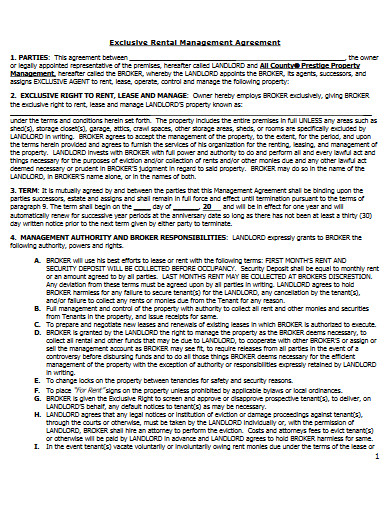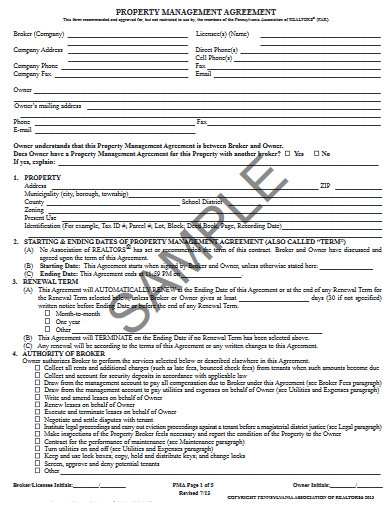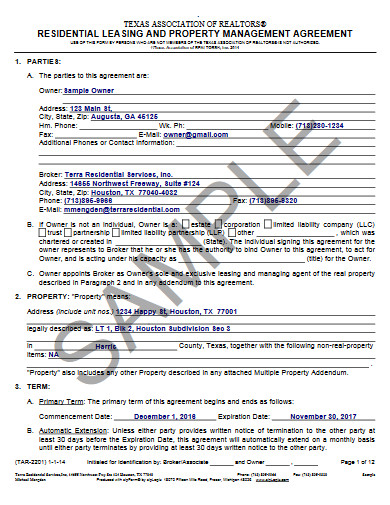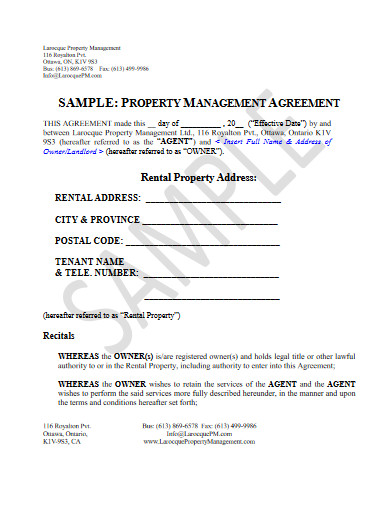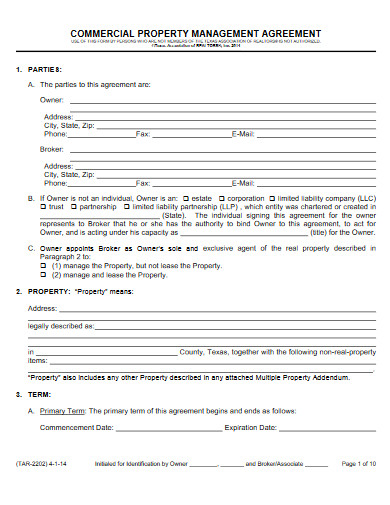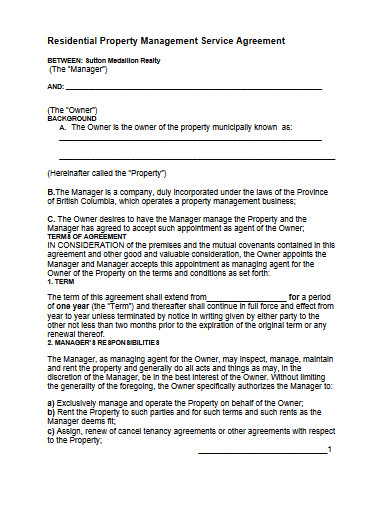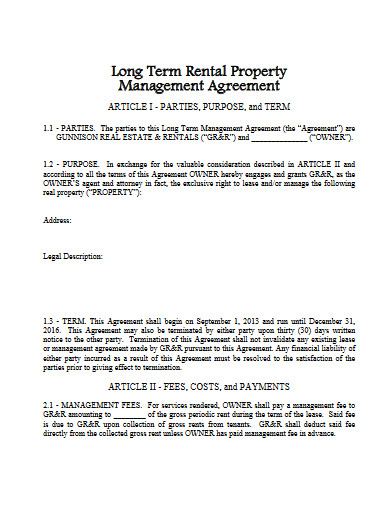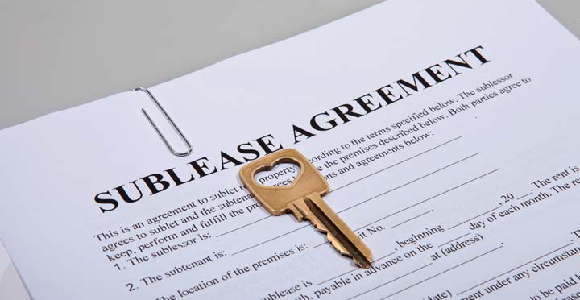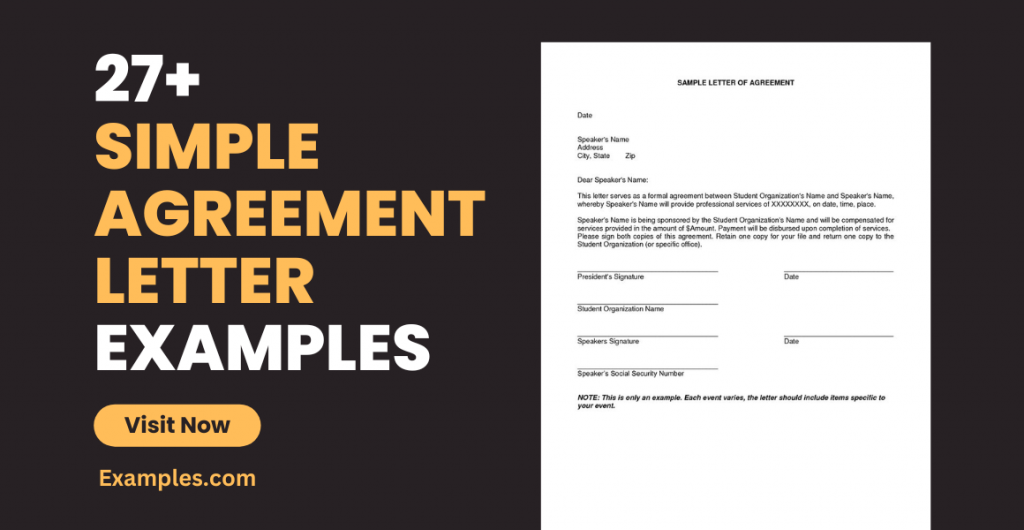It’s a waste to disregard the possibility of your real estate property earning more for you just because you lack the necessary skill to manage it. While management is something you can learn over time, you need the help of a skilled professional to administer to your property’s affairs and increase its profitability. Hire a reliable property manager to take care of it for you. When you do, it’s best to ensure that a well-made property management agreement backs you. This provides you with a comprehensive list of services that property managers can offer. It also places safeguards that tackle liability and other pertinent issues. Refer to our collection below and learn more about this in the article below.
[bb_toc content=”][/bb_toc]
10+ Property Management Agreement Examples
1. Property Management Agreement Template
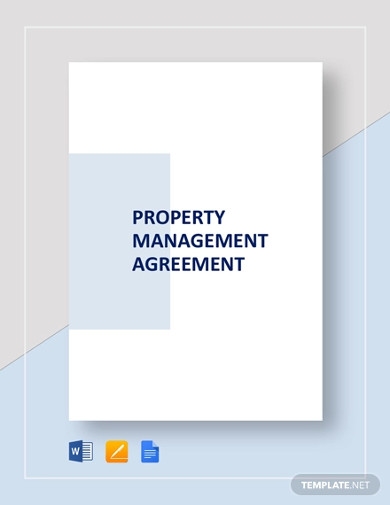
2. Commercial Property Management Agreement Template
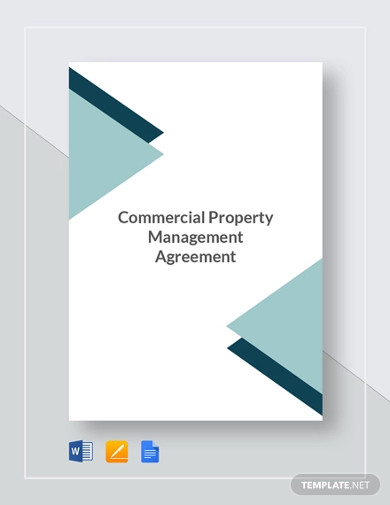
3. Property Management Agreement Example
4. Residential Property Management Agreement
5. Exclusive Rental Property Management Agreement
6. Sample Property Management Agreement
7. Realtors Property Management Agreement
8. Rental Property Management Agreement
9. Commercial Property Management Agreement in PDF
10. Residential Property Management Service Agreement
11. Long Term Rental Property Management Agreement
What Is a Property Management Agreement?
A property management agreement is a legal contract between a property management company and the property owner. This services agreement will include all responsibilities that the owner and the property will share in managing the estate. Aside from adding the assignment of tasks and duties, this agreement will also cover liabilities and legal protection to both parties.
Why Hire a Property Manager
A survey by Buildium featured in Businesswire revealed that more and more rental property owners rely on property managers to oversee their property. Most owners see their estate as a money-making venture. Yet, they’re not ready to face the responsibilities that come with managing a property and entertaining the needs of the occupants. According to the survey, 51% of the participating owners already have property managers, while 24% of them are searching for one. So, why hire a property manager? Here are some of the reason why you should have one:
1. Property managers contribute to your property’s profitability. Most owners are hesitant to hire one because it adds to their financial matters. However, having professionally trained and well-equipped personnel helps you keep your structure in the best quality, inviting more renters or guests in.
2. Property managers know how to promote your property. If you have an apartment or a commercial space, a skilled property manager knows how to fill your vacancies through an effective marketing plan.
3. Property managers supervise your regulation compliance. Because they are experts in property maintenance and administration, they’ll ensure that your business with every state laws and regulations.
4. Property managers oversee client relations. One of the most challenging parts of managing a property is dealing with clients and their concerns. A property manager knows how to talk, negotiate, connect, and answer your clients’ queries and grievances about your property efficiently.
5. Property managers bring you better tenants. Because their experience demands them to filter through a tenant’s rental application and determine if they’re a good candidate, they’ll be able to go through all profiles, including police records and bank information, to ensure that they’re trustworthy.
How to Make a Property Management Agreement
A property management agreement only works efficiently if it’s written with the right elements. Here are some guidelines that you can follow:
1. State the Scope of Services
If you’re a property manager, your client must understand your services’ scope. Without a clear description of this, you may overload your responsibilities with demands that are not within our capabilities as property managers. Create a comprehensive list of responsibilities that your client can review on the agreement. This set your client’s expectations of your roles. This will also be the basis of the incurring service fees, so it’s important to clarify your business agreement.
2. Include Liabilities
When something goes wrong, it’s only right to hold the right person accountable for what happened. However, several cases point to property management as responsible even when it’s not their fault. A liability clause on the managed services agreement would underscore the limitations of the property manager’s liability unless he or she was responsible for it. For example, if the property manager hired a maintenance team to fix the repairs and an anomaly occurs, the property owners can’t blame the manager but rather on the maintenance team. On the other hand, if there was blatant negligence on the manager’s side, there will be proper consequences.
3. Discuss the Fee
This varies depending on the management company’s service scope and inclusions. If it’s a rental property, some may demand a fee according to the monthly rental ratings. There may also be charges involving the recruitment and training sessions of property staff. Whatever it may be, it’s best to be transparent about the different management payments. You also need to include miscellaneous fees if there are any. If you’re a client, you might want to sign a partnership agreement with a company with a lower fee, but there may be invisible payments that you’re not aware of. Review the document thoroughly and ask questions during your discussion.
4. Put the Duration and the Termination Terms
It’s best to specify your contract’s duration. This way, both parties know when the agreement starts and when it will end. You may want to avoid signing a deal with a longer timeline before you’ve proven that they’re an efficient agency. This clause on your agreement should also include the procedures on how to renew and cancel the agreement. While you may not want to discuss termination before you’ve even started your services, it’s necessary to address this issue firsthand, so it doesn’t become an issue in the future.
FAQs
What skills does the property manager need?
Some of the skills that a property manager needs to have are:
- Good communication skills
- Knowledge of property laws
- Good customer service
- Organization skills
- Able to strategize a marketing campaign
- Property maintenance savvy
What is a property management report?
A property management report is a portfolio of documents that updates the owner of the property’s progress and situation. This includes delinquent tenant reports, tenant screening reports, and the rent roll, among others.
Is property management limited to rental and commercial estates only?
No, it includes private structures and residential properties as well.
A property management agreement is an essential document in ensuring that both parties understand their role meets each other’s expectations according to what’s signed on the contract. Any agreement works efficiently if they’re drafted well. Skip the hassle and get yours from our property management agreement templates. Download now!




